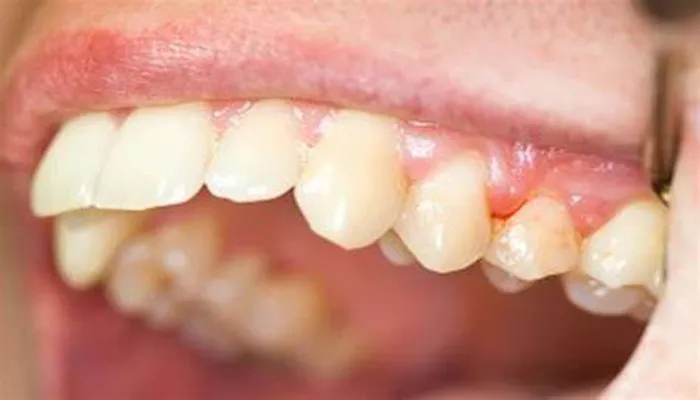Swollen gums, also known as gingival swelling, can be a common yet concerning issue that many individuals experience at some point in their lives. This condition is often a sign of underlying oral health problems and can range from mild irritation to severe inflammation. Understanding the causes of swollen gums is essential for effective prevention and treatment. This article delves into the various factors that contribute to swollen gums, providing a comprehensive overview for better oral health management.
What Is Swollen Gums
Swollen gums are characterized by inflammation and enlargement of the gum tissue surrounding the teeth. Healthy gums are typically pink and firm, while swollen gums may appear red, puffy, and tender.
Symptoms often include bleeding during brushing or flossing, discomfort, and in some cases, persistent bad breath. The primary reason for swollen gums is usually related to poor oral hygiene leading to gum disease, but there are numerous other factors that can contribute to this condition.
Common Causes of Swollen Gums
1. Gum Disease
Gingivitis: This is the earliest stage of gum disease and is primarily caused by plaque buildup on teeth. Symptoms include red, swollen gums that may bleed during brushing or flossing. If left untreated, gingivitis can progress to periodontitis, a more severe form of gum disease that can lead to tooth loss.
Periodontitis: This advanced stage of gum disease occurs when gingivitis is not adequately treated. It involves the inflammation of the supporting structures of the teeth and can result in significant damage to the bone and soft tissues around the teeth.
2. Poor Oral Hygiene
Inadequate brushing and flossing can lead to plaque accumulation, which hardens into tartar if not removed. Tartar can irritate the gums and lead to inflammation. Proper oral hygiene practices are crucial for preventing swollen gums.
3. Hormonal Changes
Hormonal fluctuations during pregnancy, menstruation, or menopause can increase blood flow to the gums, making them more sensitive and prone to swelling. Pregnant women are particularly susceptible due to increased hormone levels affecting gum health.
4. Nutritional Deficiencies
A diet lacking in essential vitamins and minerals can significantly impact gum health. Vitamin C deficiency, for instance, can lead to scurvy, a condition characterized by swollen and bleeding gums. A balanced diet rich in fruits and vegetables is vital for maintaining healthy gums.
5. Mouth Injuries
Trauma to the mouth from accidents or aggressive brushing can cause localized swelling in the gums. Burns from hot foods or beverages may also lead to temporary inflammation.
6. Dental Appliances
Ill-fitting dentures, braces, or other dental appliances can irritate the gums and cause swelling. Proper fitting and regular adjustments by a dental professional are essential for preventing this issue.
7. Food Particles Stuck in Gums
Food debris lodged between teeth can cause irritation and inflammation of the surrounding gum tissue. Regular brushing and flossing help remove these particles and reduce swelling.
8. Allergic Reactions
Some individuals may experience allergic reactions to certain dental products such as toothpaste or mouthwash, leading to gum irritation and swelling. Identifying and avoiding these products can alleviate symptoms.
9. Infections
Both viral and fungal infections can affect oral health and cause swollen gums. Conditions such as herpes simplex virus or oral thrush may lead to inflammation if not treated promptly.
10. Certain Medications
Some medications have side effects that include swollen gums as a symptom. If you notice changes in your gum health after starting a new medication, consult with your healthcare provider.
11. Tobacco Use
Smoking or using other tobacco products increases the risk of developing gum disease due to reduced blood flow to the gums and impaired healing processes.
Symptoms Associated with Swollen Gums
Recognizing the symptoms associated with swollen gums is crucial for early intervention:
- Redness
- Tenderness or pain
- Bleeding during brushing or flossing
- Persistent bad breath
- Changes in gum texture (softness or puffiness)
- Receding gums
If you experience these symptoms consistently over two weeks, it is advisable to seek professional dental advice.
Treatment Options for Swollen Gums
The treatment for swollen gums largely depends on the underlying cause:
1. Improved Oral Hygiene Practices
Brush at least twice daily using fluoride toothpaste.
Floss daily to remove plaque from areas between teeth.
Use an antibacterial mouthwash to help reduce plaque buildup.
2. Professional Dental Cleanings
Regular visits to your dentist for cleanings can help remove tartar buildup that contributes to gum inflammation.
3. Dietary Adjustments
Incorporate foods rich in vitamins C and B into your diet while reducing sugary snacks that promote plaque formation.
4. Addressing Allergies
If allergic reactions are suspected, switch dental products and consult with your dentist regarding alternatives.
5. Medication Review
Discuss any medications you are taking with your healthcare provider if you suspect they may be contributing to gum swelling.
Preventive Measures
Preventing swollen gums involves maintaining good oral hygiene practices:
Brush effectively using a soft-bristled toothbrush.
Floss gently but thoroughly.
Avoid tobacco products.
Maintain a balanced diet rich in essential nutrients.
Stay hydrated to promote saliva production, which helps protect against plaque buildup.
Schedule regular dental check-ups every six months for professional cleanings.
Conclusion
Swollen gums are often an indicator of underlying health issues that require attention. By understanding the various causes—from poor oral hygiene practices to hormonal changes—individuals can take proactive steps toward prevention and treatment. Regular dental visits combined with effective home care routines will significantly enhance gum health and overall oral hygiene.
Related topics:

